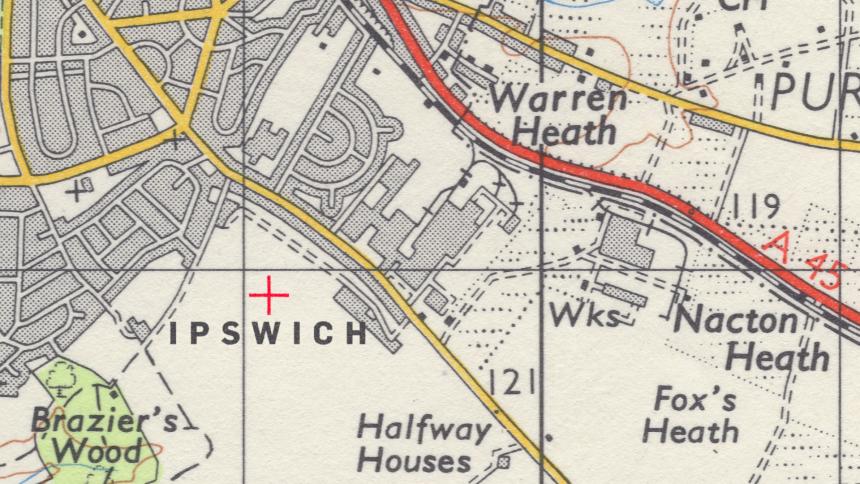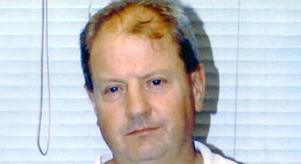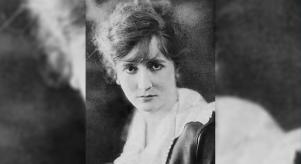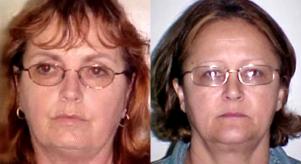
Ipswich: crime profile
Murdertown has returned for a new series probing some of the most shocking crimes to hits towns and cities across the UK. Katherine Kelly, star of acclaimed dramas Liar and Cheat, talks us through the crimes, while insights from those closest to the cases give us an in-depth look at just what happened, and how the culprits were caught.
In Ipswich, the focus is on local girl Lorraine Thorpe, whose descent into alcohol and drugs began when she was just a teenager, and who would end up with the dubious distinction of becoming Britain’s youngest female double murderer. But, while this case shook Ipswich, other equally sinister cases have startled the community over the years…
Watch Murdertown S1 and S2 on Crime+Investigation
The councillor turned killer
In 2018, an unlikely murderer was sent down by a court in Ipswich. Unlikely because the 64-year-old had until very recently been a respected pillar of the community, working as a UKIP councillor for Suffolk County Council. The case was strange right from the start, when Stephen Searle made his curiously casual call to 999 saying 'I’ve er… just killed my wife', going on to explain it was 'suffocation, really, I guess' and that it was a 'bit of a bizarre situation'.
That turned out to be quite the understatement. It turned out that the former councillor had killed his wife Anne in the wake of a recent revelation that he’d been having an affair with his own son’s girlfriend.
The girlfriend, Anastasia Pomiateeva – who also happened to be the mother of one of Stephen Searle’s grandchildren – recounted how the much older man had become fixated on her, plying with her attention until she finally gave in to his advances. 'I had always been intimidated by him as he’s very powerful, controlling and manipulative,' she said.
The obsession had predated the affair. According to Anastasia, even before he’d made moves on her, Searle had collected photos from her social media profiles and superimposed her head onto porn stars. But, thanks to his forbidden lust and the lethal fallout with his wife, Searle is now serving a 14-year minimum term behind bars.
True crime sensations in the region go back far longer than living memory. Take the ‘Red Barn Murder’ of 1827, which took place in Polstead, a village less than 15 miles from Ipswich. It was at the eponymous red-roofed barn that a local woman named Maria Marten made a fatal rendezvous with her lover William Corder, the sly and womanising son of a prominent farmer. He had promised to elope with Maria, but – apparently appalled by her tarnished reputation for having illegitimate children – he shot her dead in that barn, covered the crime up and tried to start a new life elsewhere.
The story became a major national obsession, thanks to its mix of scandalous sex and hints of the supernatural (Maria’s stepmother allegedly had dreams which revealed the truth of what happened to her). Ballads were written about Corder and Maria, while plays about the murder were put on in public houses even as Corder languished in his cell.
After he was eventually hanged, Corder’s skin was turned into leather to bind a book chronicling the case, and hundreds of thousands of people visited Polstead to gawp at the barn. Contemporary crime tourists will be out of luck, though, as the barn burnt down in 1842.
Perhaps no single figure has ever cast such a dark shadow over Ipswich as a seemingly average and unassuming, middle-aged forklift driver called Steven Wright. Now known as the Suffolk Strangler, Wright murderer five women in late 2006, in a shockingly sudden reign of terror which struck fear into the hearts of sex workers in Ipswich. The women, whose bodies were found in rivers and woodlands around the Ipswich area, came from all walks of life. One was Tania Nicol, who grew up on a housing estate, while another, Gemma Adams, had a privileged upbringing complete with horse riding lessons. Yet what they all had in common was drug addiction, and a desperation that led them to work the red-light district of Ipswich. One of the victims, Paula Clennell, was even interviewed by a reporter about the climate of fear in Ipswich. ‘The girls are probably wary about coming out now,’ she said, just days before she herself went missing.
The hunt for the killer, whose targeting of sex workers drew grim comparisons with the Yorkshire Ripper, became an epic endeavour, involving over 650 police officers from 40 different police forces. It was the painstaking work of forensic experts which provided the eventual breakthrough, when traces of the killer’s DNA were found and cross-referenced with the national DNA database. Wright’s DNA was on the database because he’d been convicted of petty theft back in 2001 – if it hadn’t been for that minor crime, he might never have been snared.
Wright’s life story became tabloid fodder, as it was revealed he’d once worked as a steward on the QE2, and even popped up on the classic travel show Whicker’s World. But behind his clean-cut façade, the young Wright was already exhibiting signs of the monster he’d become – a former partner from the QE2 days recounted how he’d been pathologically jealous and violent towards her, even attacking her with a knife.
The story of Wright’s impact on the people of Ipswich was turned into a movie, London Road, which stars Tom Hardy and Olivia Colman and makes the bold, poignant move of setting the events to music. The Wright case has also drawn fresh attention to another crime: the presumed murder of estate agent Suzy Lamplugh, who vanished into thin air after going to show a property to someone called 'Mr Kipper' back in 1986.It turned out Wright had actually worked alongside Suzy on the QE2, and Wright’s ex-partner alleged he would use the word ‘kipper’ as a slang term for ‘face’. However, no hard evidence suggests Wright was the mysterious Mr Kipper, and the detective who headed the Suzy Lamplugh investigation has ruled out any connection.





